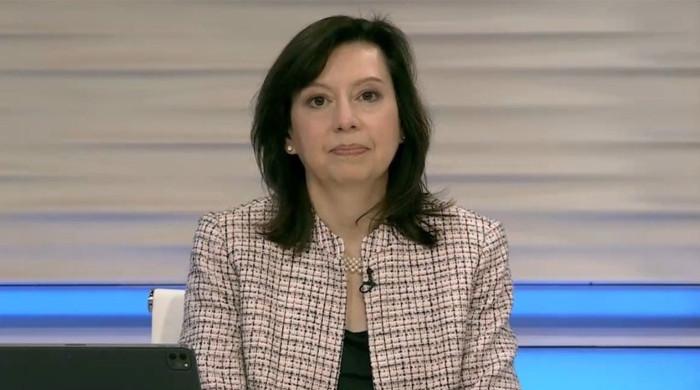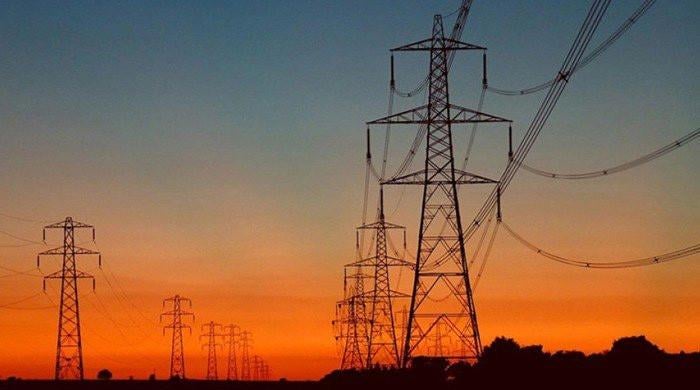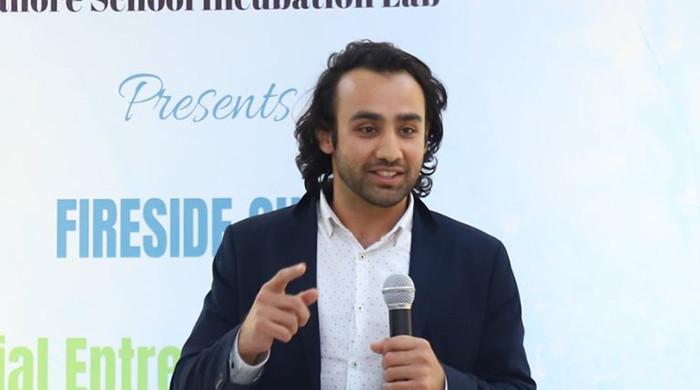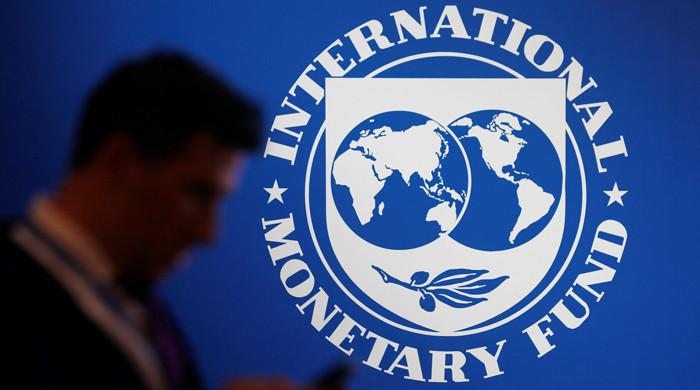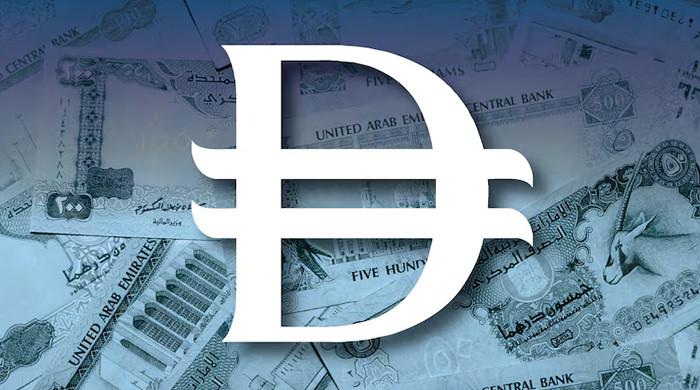IFC chief's visit sparks hopes for $20bn private sector boost
International Finance Corporation Managing Director Mukhtar Diop due to arrive in Islamabad today
February 14, 2025
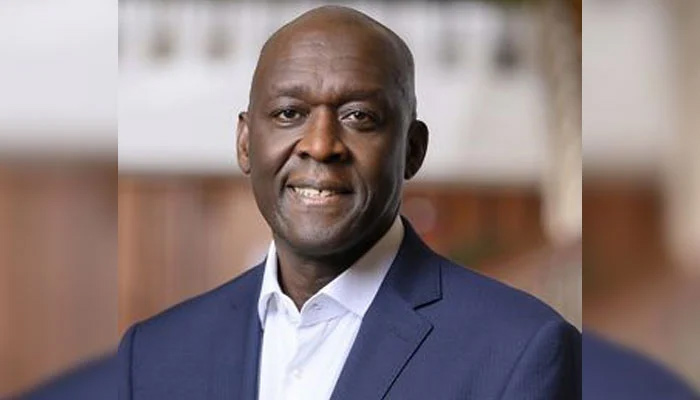
- Visit comes on heels of WB Group’s approval of transformative strategy.
- Country Partnership Strategy pledges $20bn in outlays over next decade.
- IFC investments to bolster country's private sector, averaging $2bn yearly.
International Finance Corporation (IFC) Managing Director Mukhtar Diop is arriving today (Friday) in Islamabad, marking the first high-level IFC delegation’s visit to the country in nearly a decade.
The visit comes on the heels of the World Bank (WB) Group’s approval of a transformative Country Partnership Strategy, which pledges $20 billion in IFC investments over the next decade to bolster Pakistan’s private sector, averaging $2 billion annually.
This commitment of IFC is over and above the $20 billion committed by the WB through IDA (concessional finance window) and IBRD. Taking the cumulative investment of the WB group to $40 billion over the next decade.
Pakistan Executive Director to the World Bank Dr Tauqir shah, while speaking to this correspondent, said that the recently approved $40 billion country partnership framework for next decade is a huge expression of confidence by the group in Pakistan’s reform agenda and economic consolidation during last two years, and MD IFC visit almost after a decade is further endorsement of this confidence. He further said IFC has a very strong investment pipeline for Pakistan, but it remains subject to continued economic and political stability in the country.
Shah said that the IFC’s unprecedented investment pipeline aims to catalyse growth across critical sectors in Pakistan, including infrastructure, renewable energy, agriculture, and SMEs. This aligns with the institution’s mandate to drive job creation, innovation, and climate resilience in developing economies.
Most promising investment IFC has in Pakistan is its substantial financing in the Reko Dig mining project. The projected IFC financing package in Reko Diq will be around $2.5 billion. It will be IFCs largest single investment in mining sector globally.
Mukhtar Diop, the Senegalese-born Muslim economist and a towering figure in global development, leads the IFC — the World Bank Group’s private sector arm focused on emerging markets. With over five years as IFC’s Managing Director, Diop brings a storied career: former World Bank Vice President for Infrastructure and Africa, Senegal’s ex-Minister for Economy and Finance, and a celebrated advocate for the Global South. Recognised among the 100 Most Influential Africans, Diop’s leadership is synonymous with bridging economic gaps and advancing sustainable development.
Diop’s trip, Shah said, signals a strategic pivot towards Pakistan amid global economic headwinds. He added that by channeling funds into high-impact projects, the IFC seeks to address structural challenges such as energy deficits, digital transformation, and access to finance — key hurdles outlined in Pakistan’s development agenda. The investment also underscores the WB Group’s confidence in Pakistan’s reform trajectory, particularly efforts to improve the business climate and attract foreign investment.
Diop’s visit included dialogues with government officials, business leaders, and civil society to prioritise projects that align with Pakistan’s climate goals and socio-economic inclusivity.
“This partnership isn’t just about capital — it’s about building resilience and unlocking opportunities for millions,” Diop remarked recently.
According to Tauqir Shah since 2019 IFC has committed $7.2 billion in investments across key sectors of Pakistan economy. However since 2022 IFC has increased its investments in Pakistan 3.5 times — with its investments reaching $1.5 billion in 2023 and $2.1 billion in 2024. With economy stabilising IFC plans $2 billion investment every year under the World bank group CPF for next 10 years.
Scale-up in IFC’s investment operations in Pakistan over the last couple of years have included many firsts in the country: (i) First greenfield, Sustainable Aviation Fuel project being set up in Punjab, which will lead to a significant increase in exports; (ii) First new tyre manufacturing facility in the country in almost 60 years (near Karachi) to help replace imports; (iii) First Sustainability Linked Loan in the country to a manufacturing company, with gender and water KPIs (KP province); and (iv) Development of a framework for Pakistan’s first Diversified Payments Rights (DPRs) investment — ground breaking engagement to help strengthen capital markets and enable cheaper access to foreign exchange funding for the private sector.
Shah explained that IFC investment have a hugely positive impact since it leverages other private sector investors to crowd in to IFC sponsored projects. The expertise and immaculate due diligence which is a forte of IFC encourages other foreign direct investors to join IFC sponsored projects. In this manner IFC leverages four to five time more investments in private sector thus generate more high quality jobs.
Shah said over the years, IFC has made several high impact investments in sectors like low-cost renewables (first set of private wind and hydro projects), first LNG terminal, first private sector led housing finance company, first sustainability linked loan, and multiple gender, climate and financial inclusion focused initiatives particularly for SMEs.
In manufacturing and services, IFC has supported investments in chemicals, healthcare, retail, dairy and agribusiness, textile, cement and other export oriented industries, as well as making early stage investments in the nascent venture capital/private equity sectors.
IFC has also significantly scaled up its trade finance program to help companies meet USD liquidity needs for critical imports including energy. Pakistan is now the largest recipient of IFC’s trade finance program in the world.
Originally published in The News






